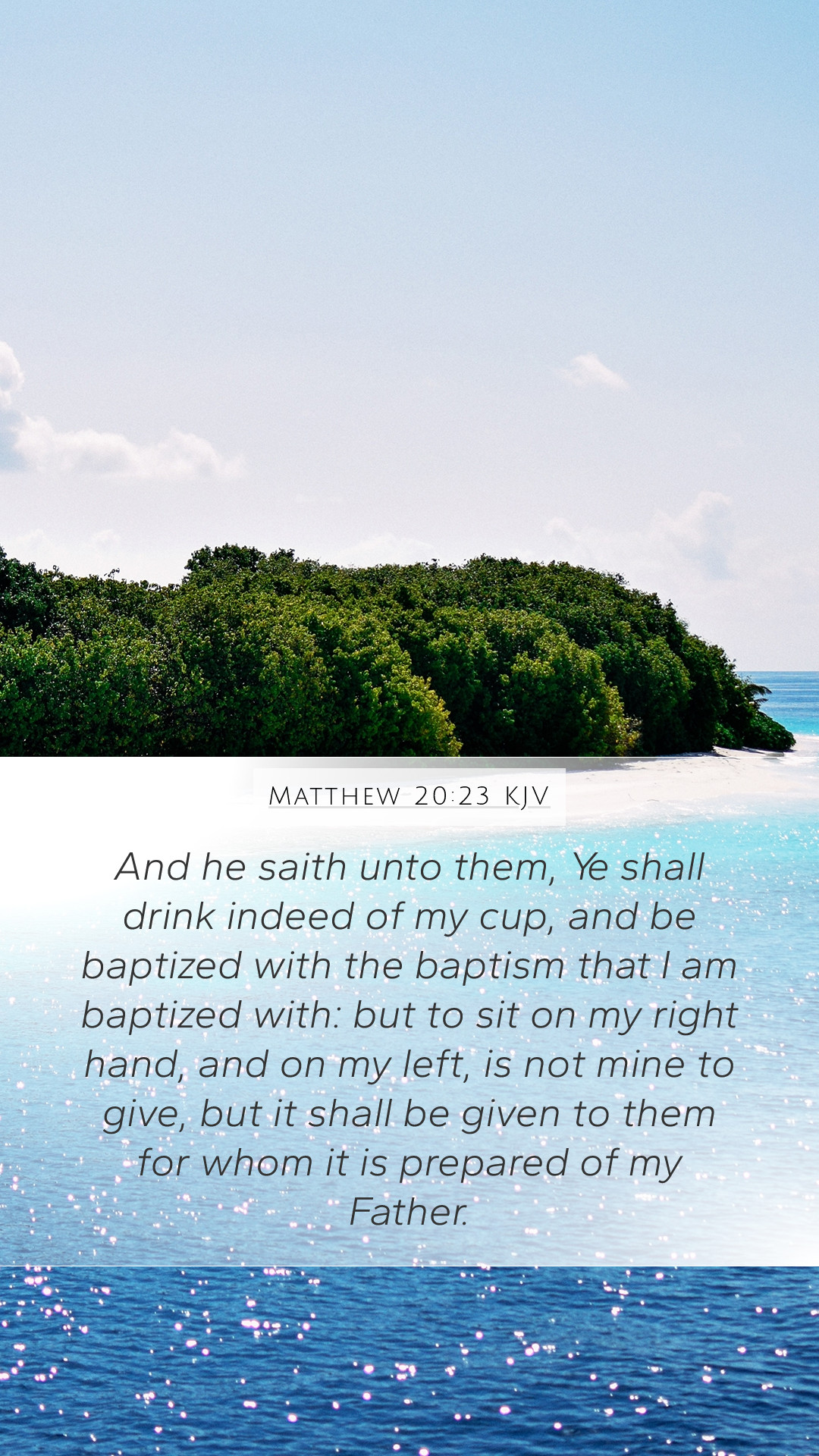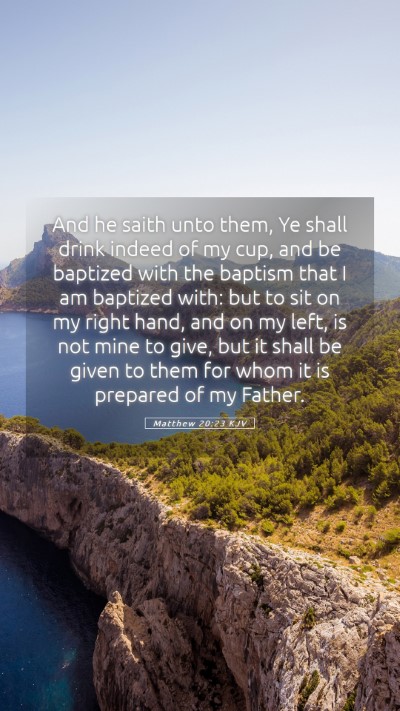Understanding Matthew 20:23
Verse: "And he saith unto them, Ye shall drink indeed of my cup, and be baptized with the baptism that I am baptized with: but to sit on my right hand, and on my left, is not mine to give, but it shall be given to them for whom it is prepared of my Father." (Matthew 20:23)
Bible Verse Meanings
This verse captures a profound moment in Jesus' ministry where He addresses the request of James and John, who sought positions of honor in His future glory. The meaning of this verse is rooted in the themes of sacrifice, suffering, and divine appointment.
Bible Verse Interpretations
Bible verse interpretations often highlight the disciples' misunderstanding of Jesus' mission. Matthew Henry notes that their request signifies a desire for earthly power rather than understanding the spiritual nature of His kingdom.
Albert Barnes elaborates by explaining that Jesus’ mention of the "cup" refers to the suffering He would endure, while the "baptism" indicates the trials and tribulations inherent in following Him.
Adam Clarke emphasizes the exclusivity of divine authority, stating that the positions of honor in heaven are determined by God and not by personal ambition or request.
Bible Verse Understanding
In seeking to understand Matthew 20:23, it is crucial to comprehend the cultural context of honor and the expectations the disciples had regarding the Messiah. Their longing to be seated at Jesus’ side reflects a common aspiration for recognition in a societal hierarchy.
Furthermore, the verse prompts reflection on the nature of true greatness in the kingdom of God, which contrasts sharply with worldly aspirations for status.
Bible Verse Explanations
The explanations surrounding this verse delve into Jesus' role as a suffering servant and the nature of His kingdom. Rather than seeking to elevate Himself, Jesus offers a model of humility and service. The references to drinking from His cup and baptism suggest a call to participate in His sufferings for the sake of the Gospel.
Scripture Analysis
Analyzing Matthew 20:23 requires an understanding of its placement within the Gospel narrative. This request from James and John occurs after Jesus foretells His death, indicating their failure to grasp the implications of His passion and the radical nature of His mission.
- Historical Context: The disciples were likely influenced by Jewish Messianic expectations that envisioned the Messiah establishing an earthly kingdom.
- Theological Implications: Jesus emphasizes that true greatness comes through servitude, as elaborated later in Matthew 20:26-28.
Biblical Exegesis
An exegesis of this passage reveals layers of meaning regarding discipleship. Jesus’ response teaches that all followers are called to embrace their own “cup” of suffering, requiring a full commitment to the ways of His ministry.
The inevitability of sharing in His sufferings leads to the ultimate reward determined by God’s sovereign will, rather than human ambition.
Bible Study Insights
This verse serves as a vital topic for Bible study groups, potentially guiding discussions toward humility in leadership and the nature of God's kingdom. It challenges believers on how they view greatness and success in their faith journeys.
Cross References
- Matthew 20:26-28: Jesus outlines the principles of true greatness.
- Romans 8:17: Participation in Christ’s sufferings leads to share in His glory.
- Philippians 1:29: Believers are granted the privilege of suffering for Christ’s sake.
Application of the Verse
When applying Matthew 20:23 to daily life, believers are encouraged to adopt a posture of servitude rather than seeking power or recognition. This reflects the essence of Christian leadership, which is rooted in humility and a willingness to carry the weight of the Gospel.
The verse beckons introspection about personal motivations in the faith community. Are we seeking titles or fame, or are we willing to share in the sufferings of Christ and serve others selflessly?


